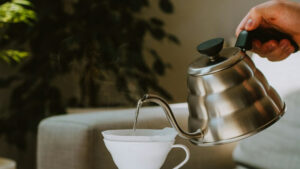
Which Type Of Materials Can You Use To DIY Your Travel Kettle?
Every travel kettle is a potential canvas waiting to be transformed into a piece that not only brews your favorite drinks but also showcases your

Every traveler knows that a bollitore da viaggio is a must-have for that early morning coffee or late-night tea. But, keeping it free from rust is crucial to ensure its longevity and the safety of your drinks.
In this blog, we’ll dive into effective strategies to prevent your travel kettle from succumbing to the dreaded rust, ensuring it remains your faithful travel companion for years to come.
The journey to a rust-free travel kettle begins with selecting the right material. The material of your kettle not only dictates its overall durability but also its resistance to rust. Let’s explore some of the best materials for your travel companion.
Stainless steel, known for its resilience and rust-resistant properties, makes an excellent choice for travel kettles.
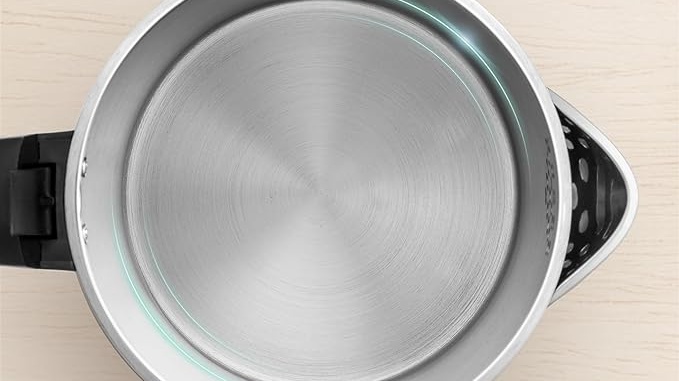
This material stands up well against the elements, ensuring that your kettle remains free from rust even with regular use. It’s also a breeze to clean, requiring only a simple wipe down with a damp cloth to maintain its shine and hygiene.
Furthermore, stainless steel does not impart any flavors to your water, ensuring that your beverages taste pure and fresh every time.
However, it’s important to note that not all stainless steel is created equal. Look for high-grade stainless steel when choosing your kettle, as lower grades may not offer the same level of rust resistance.
For those who prioritize lightness and portability, plastic travel kettles offer a viable solution. These kettles are inherently resistant to rust, given their material composition.
When selecting a plastic kettle, it’s crucial to opt for one that is BPA-free to ensure that your hot beverages are safe for consumption. High-quality plastic can withstand high temperatures without warping or releasing harmful chemicals.
However, it’s worth noting that while plastic kettles won’t rust, they may not offer the same robustness and longevity as their stainless steel or glass counterparts. They are best suited for travelers who value weight savings over durability.
Glass kettles present a stylish and safe option for those concerned about chemical leaching and rust. Glass is completely resistant to rust and offers the added benefit of allowing you to see the water as it boils.
These kettles often come with stainless steel or plastic accents, combining aesthetics with functionality. However, the main drawback of glass kettles is their fragility.
They require careful handling, especially during travel, to prevent breakage. If you’re someone who treats their travel gear with extra care, a glass travel kettle could be a beautiful addition to your travel essentials.
A key factor in preventing rust in your travel kettle is how well you pulire and maintain it. Regular and thorough cleaning not only keeps the kettle hygienic but also guards against rust and corrosion.
The importance of routine cleaning for maintaining a rust-free travel kettle cannot be overstated.
After each use, rinse your kettle with warm water and a mild detergent to remove any residue or minerals that might have been left behind. This simple practice helps prevent the buildup of substances that could lead to rust over time.
For those who use their kettles frequently, a quick wipe on the outside to remove fingerprints and water spots will keep the kettle looking new.
Be sure to use a soft sponge or cloth to avoid scratching the surface, as scratches can become breeding grounds for rust.
Deep cleaning your travel kettle on a regular basis is crucial for preventing rust. This involves more than just a simple rinse; it’s about targeting the buildup that routine cleaning can miss.
A mixture of vinegar and water is perfect for this task. Fill the kettle with a solution of equal parts water and vinegar, let it sit for an hour, then bring it to a boil. This process helps dissolve mineral deposits and other residues that could lead to rust if left unchecked.
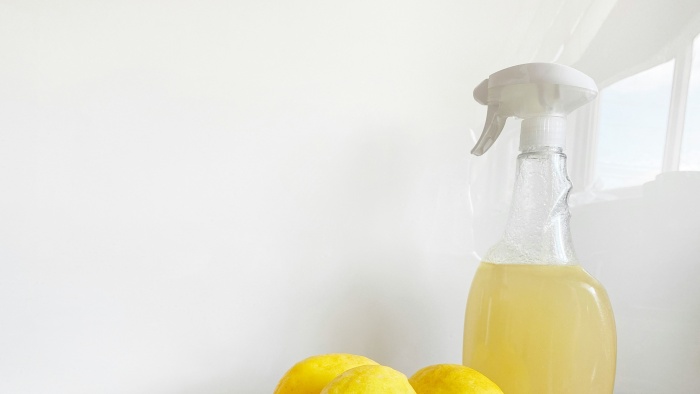
After boiling, thoroughly rinse the kettle with fresh water to remove any vinegar smell. This method is effective, eco-friendly, and safe, ensuring your kettle remains in optimal condition.
Ensuring your travel kettle is completely dry before storage is perhaps the most crucial step in rust prevention.
Any remaining moisture can lead to rust, especially if the kettle is stored for an extended period. After cleaning, dry your kettle thoroughly inside and out with a clean towel or let it air dry completely.
If storing your kettle in a cupboard or bag, make sure the environment is dry and well-ventilated to prevent any moisture from accumulating.
A dry storage environment not only prevents rust but also keeps your kettle ready for use whenever you need it.
Moisture is the enemy of a rust-free travel kettle. Here’s how to keep your kettle dry and safe, especially when you’re on the move.
Developing proper usage habits is essential for keeping your travel kettle rust-free.
Avoid leaving the kettle in wet areas, such as near sinks or in damp bathrooms, for extended periods. After use, ensure the kettle is emptied and dried promptly.
For those who enjoy camping or outdoor adventures, make sure to store your kettle in a dry place away from the elements.
By keeping your kettle dry and away from moisture-prone areas, you can significantly reduce the risk of rust development.
Traveling exposes your travel kettle to various environments, some of which may be more humid than your home.
To protect your kettle, consider using a travel case or bag that repels moisture. These cases not only prevent your kettle from coming into direct contact with wet items in your luggage but also offer additional padding to protect against bumps and drops.
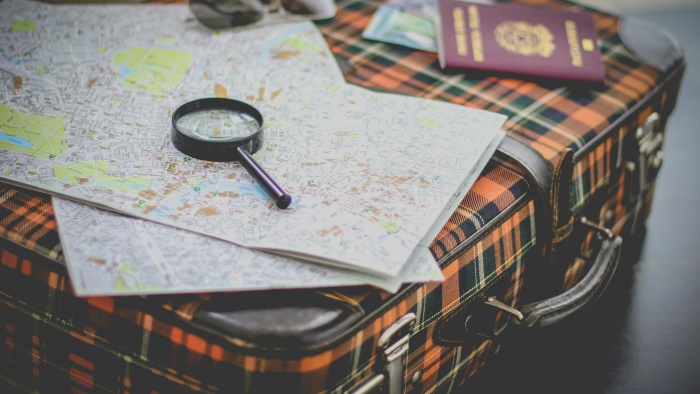
For extra protection, you can insert a small silica gel packet into the case to absorb any moisture that might be present.
This simple step can go a long way in keeping your kettle dry and rust-free throughout your travels.
For additional protection against rust, consider using a food-grade rust inhibitor in your travel kettle.
These products are designed to create a protective barrier on metal surfaces, preventing moisture from causing rust.
Apply the inhibitor according to the manufacturer’s instructions, ensuring it’s safe for use on surfaces that come into contact with food or drink.
While not all kettles may require this level of protection, those made from materials prone to rusting could benefit significantly from this extra layer of defense.
Preventing rust in your bollitore da viaggio is essential for ensuring its longevity and the safety of your beverages.
Through careful selection of materials, diligent cleaning and maintenance, dry storage, and protective measures during travel, you can keep your kettle in pristine condition.
By following these simple steps, your travel kettle will remain a reliable and rust-free companion on all your adventures, ready to provide you with warm comfort wherever you are.
Remember, a little effort goes a long way in preserving the quality and functionality of your travel essentials.
Can I use bleach to clean my travel kettle and prevent rust?
Using bleach to clean a travel kettle is not recommended. Bleach is a harsh chemical that can damage the kettle’s material and potentially leave harmful residues. Instead, opt for natural cleaning agents like vinegar or lemon juice, which are effective at removing stains and mineral deposits without the risk of damaging your kettle.
How often should I replace my travel kettle to avoid rust issues?
The need to replace your travel kettle depends on how well you maintain it. With proper care and regular cleaning, a high-quality stainless steel or BPA-free plastic kettle can last for many years without rusting. Only consider replacement if you notice persistent rust that cannot be removed or if the kettle begins to leak.
Are there any specific signs of rust I should look out for?
Yes, signs of rust can include visible reddish-brown flakes or spots on the metal parts of the kettle, a metallic taste in the water boiled in the kettle, or discoloration of the water. If you notice any of these signs, it’s important to thoroughly clean your kettle. If the rust persists, it may be time to consider getting a new kettle.
Can I prevent rust by boiling only distilled water in my travel kettle?
Boiling distilled water can help minimize the risk of rust and mineral buildup since it lacks the minerals found in tap water. However, it’s not a foolproof solution to prevent rust. Proper cleaning and drying after each use are crucial steps in rust prevention, regardless of the water type used.
Is it safe to use a rusted travel kettle?
Using a rusted travel kettle is not recommended. Rust can compromise the integrity of the kettle, leading to potential leaks. Moreover, rust can flake off into the water, posing health risks when ingested. If your kettle has rust that cannot be cleaned off, it’s best to replace it to ensure the safety and quality of your beverages.


Every travel kettle is a potential canvas waiting to be transformed into a piece that not only brews your favorite drinks but also showcases your
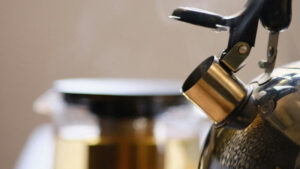
When you think of customizing your travel tea kettle, the idea of adding LED lights probably isn’t the first thing that comes to mind. However,
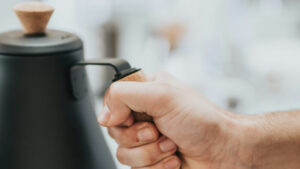
Every travel kettle enthusiast knows the pain of a lukewarm cup of tea or coffee. It’s like expecting a hug and getting a handshake. But
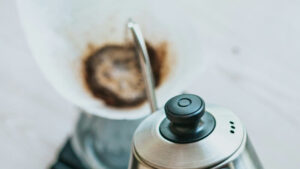
There’s something uniquely comforting about enjoying a hot cup of tea while on the road, but keeping your travel tea kettle warm and protected can

Every travel kettle is a potential canvas waiting to be transformed into a piece that not only brews your favorite drinks but also showcases your

When you think of customizing your travel tea kettle, the idea of adding LED lights probably isn’t the first thing that comes to mind. However,

Every travel kettle enthusiast knows the pain of a lukewarm cup of tea or coffee. It’s like expecting a hug and getting a handshake. But

There’s something uniquely comforting about enjoying a hot cup of tea while on the road, but keeping your travel tea kettle warm and protected can
Copyright © 2024 brewgotravelkettle. All Rights Reserved.